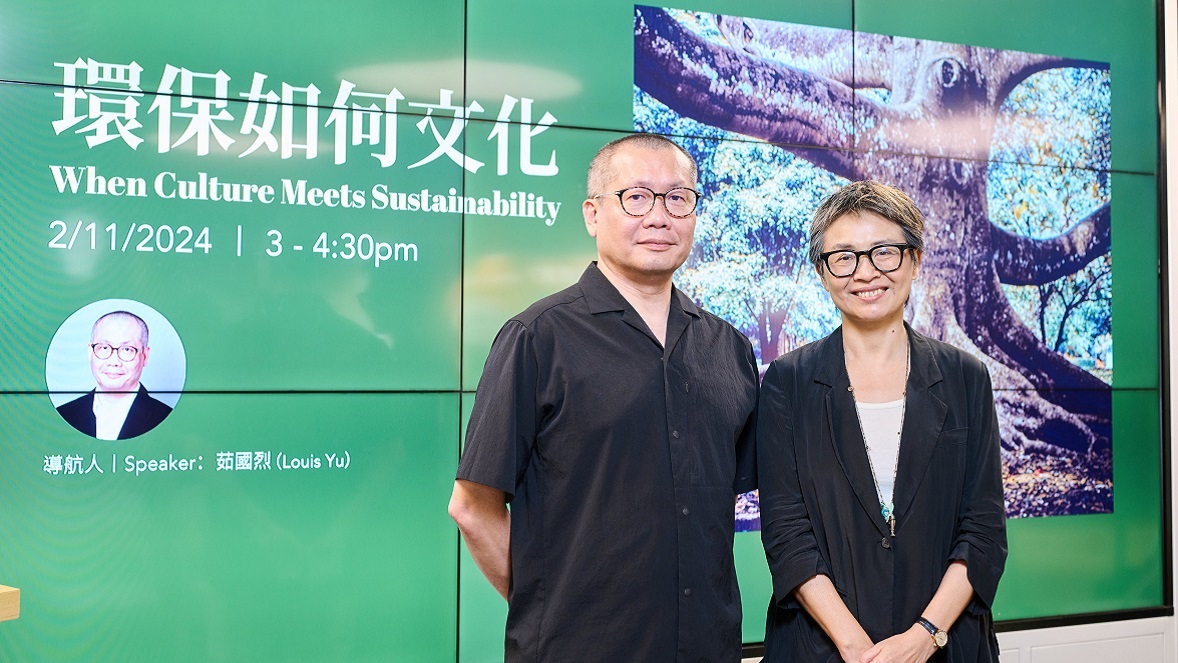
Have you ever considered how we might leverage culture to promote green living? Or how we can foster a culture of eco-conscious practices? At Link Sustainability Lab, the charity Read-Cycling, which operates the green product concept store Fairly Goods, explored this connection through the talk “When Culture Meets Sustainability”. They invited YU Kwok Lit (Louis), a veteran Hong Kong arts administrator, to share global examples, guiding participants in observing and reflecting on the interplay between culture and sustainability.
Culture and the public. The public and sustainability. Sustainability and culture. At first glance, these relationships may seem complex and difficult to explain. In Louis’ view, however, they develop through subtle, accumulated influences in everyday life. “Environmental protection, decarbonisation, and sustainability are now firmly embedded in Hong Kong’s consciousness,” he says. “I believe this shift occurred because of people’s exposure to cultural and artistic works – films, animations, comics, literature – which gradually led them to internalise these concepts. Compared to serious news and policy campaigns, these creative mediums have had a far greater impact.”
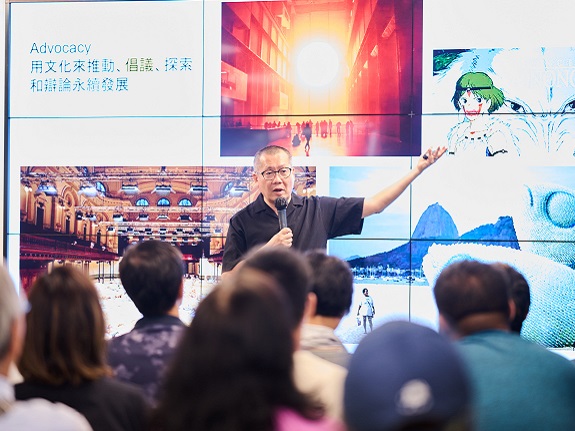
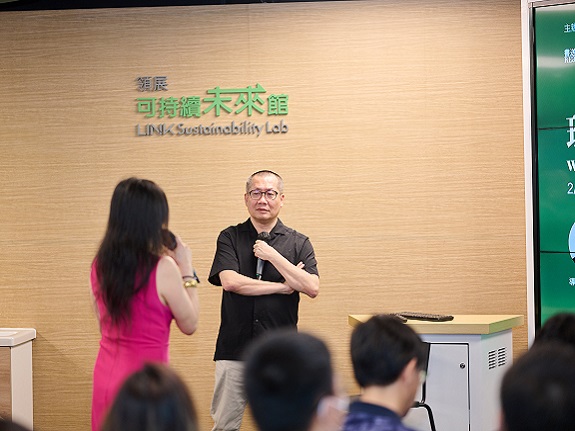
Louis uses the example of Hayao Miyazaki’s animations, which are familiar to many, to explain: “When you experience the beauty of Earth through these films and understand the challenges it faces, you naturally feel compelled to help protect the planet and preserve its environment.”
Having previously served as Director of the Hong Kong Art School and Executive Director of Performing Arts at the West Kowloon Cultural District Authority, Louis is now an Adjunct Associate Professor in the Department of Cultural and Religious Studies at The Chinese University of Hong Kong. While he often presents his seminar series “What Makes a City Cultural” to academic audiences, this time he brought his talk “When Culture Meets Sustainability” to Link Sustainability Lab, engaging a broader audience in their local community.
“The Lab is situated within a residential area, so I adapted my presentation style to better connect with the audience. I incorporated more striking visuals and videos, focusing on storytelling to build emotional connections. By sharing stories about people and places, I aimed to help the audience understand how sustainability and culture intertwine.”
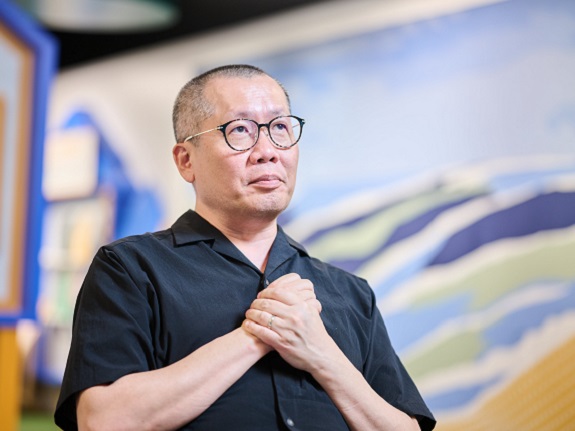
Louis shares that he is developing Hong Kong’s first conference focused on culture and sustainability. “I plan to spend a year collaborating with like-minded partners to tell Hong Kong’s story of culture and sustainability, using our city as a starting point. My first visit to Link Sustainability Lab has been truly inspiring, and I hope to showcase its success story at the conference to help others understand its significance and value.”
Read-Cycling, the charity that organised the seminar, has been operating its Fairly Goods concept store at Link Sustainability Lab for nearly five months. The store specialises in giving books a second life through donations and sales. Founder Cynthia Lau shares: “We initially expected children’s books to be our main attraction. What’s surprised us, however, is the diverse interests of residents – they’re drawn to everything from astronomy to geography, with particular interest in ecological studies, serious literature, and philosophy, in both Chinese and English.”
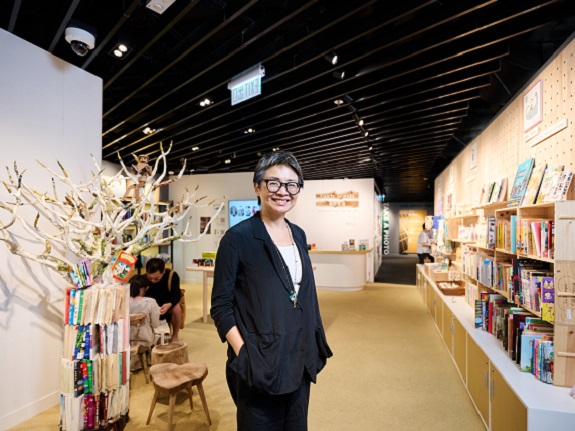
Although they have been in Lok Fu for less than six months, the Fairly Goods team already considers themselves part of the community: “We’ve formed genuine friendships with many regular visitors, who sometimes bring us snacks as a gesture of encouragement. This spirit of mutual care and connection is what placemaking is truly about—it’s the perfect portrait of a thriving community.”